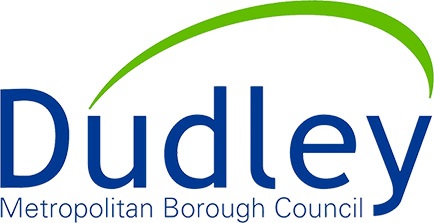
“We did it!” UNESCO Geopark status secured
There were huge cheers from around the Black Country today as the region became an official, world-famous UNESCO Global Geopark.
After submitting its final stage of the application to UNESCO last year, the Black Country Geopark project group has been waiting with bated breath to hear whether it would be successful.
And today (July 10), more than ten years on since the project was first conceived and discussed it has become a reality.
The Executive Board of UNESCO has confirmed that the Black Country has been welcomed into the network of Global Geoparks as a place with internationally important geology, because of its cultural heritage and the active partnerships committed to conserving, managing and promoting it.
This means the Black Country is now on a par with UNESCO Global Geoparks in countries stretching from Brazil to Canada and Iceland to Tanzania.
Geopark status recognises the many world-class natural and important cultural features in the Black Country and how they come to tell the story of the landscape and the people that live within it.
In the case of the Black Country, the significant part it played in the industrial revolution has been at the heart of the bid. More than forty varied geosites have been selected so far within the geopark that tell its story as a special landscape but more will be added as the Geopark develops.
Geosites include Dudley and Wolverhampton Museums, Wrens Nest National Nature Reserve, Sandwell Valley, Red House Glass Cone, Bantock Park and Walsall Arboretum.
Key partners involved in the geopark include Natural England, the Canal and River Trust, the Wildlife Trust For Birmingham and the Black Country, the Black Country Consortium and the Black Country Local Enterprise Partnership.
Ambassador Matthew Lodge, UK Permanent Delegate to UNESCO, Foreign and Commonwealth Office:
I am delighted that the Black Country has become the UK's eighth UNESCO Global Geopark, joining the UK's exceptional network of UNESCO designations.
With geology stretching back 428 million years, and a landscape and heritage that shaped the modern world during the industrial revolution, it is right that the Black Country is given this prestigious UN status.
Today's announcement ensures that this remarkable site will continue to inspire the million people who call the landscape home, as well as local and international visitors in the years to come. Congratulations to all.
Councillor Patrick Harley, leader of Dudley Council, said:
We did it! This is a truly a momentous occasion for the Black Country. I couldn’t be prouder of what has been achieved and I am delighted the announcement has been made during Black Country Month.
Our region is renowned for being a driving force during the industrial revolution and this status recognises the importance our geological heritage played at the time and how it defined this area. It also marks the start of an exciting new chapter.
Becoming a UNESCO Global Geopark really puts us on the world map and gives us the opportunity to tell our story to the world and celebrate the many sites and features that we are so fortunate to have.
We hope this new UNESCO badge will encourage visitors from all over Great Britain and from around the world and bring in new funding to help us to further develop the Geopark.
Tony Juniper, Chair of Natural England, said:
Today is a landmark achievement which recognises the internationally rich geology and cultural heritage of the Black Country. The move will benefit the environment and boost tourism, as well as providing more people with the opportunity to connect with the natural world.
We will continue to play our part in making the most of the opportunities that this new Geopark brings, through conserving, recovering and championing the natural environment for the benefit of people and Nature alike, for generations to come.
Chris Handy, deputy chair and place lead for Black Country Local Enterprise Partnership, said:
This is fantastic news for the whole Black Country and for all the partners who have worked so hard to achieve this UNESCO status.
We’ve long known that the Black Country is home to world-class sites of geological importance, sites that have played a key role in shaping our area both in terms of the places and the people. This news comes at a difficult time in the Black Country’s history and beckons great times ahead, we look forward to working together to share and celebrate our Geopark with both the people of the Black Country but also the people we hope it will encourage to visit.
To find out more about the Black Country UNESCO Global Geopark, people can go to www.blackcountrygeopark.org.uk, follow @BCgeopark on twitter or the Black Country UNESCO Global Geopark Project on Facebook.
Notes to editors
- It was back in 2016, when the four Black Country authorities (Dudley, Sandwell, Walsall and Wolverhampton) with the backing of the UK National Commission for UNESCO (unesco.org.uk) and the UK’s seven existing geoparks submitted an application to become part of the UNESCO Global Geopark family.
- In 2017, after assessing the application, the UNESCO Global Geoparks Committee (UGGC) made a number of positive recommendations and gave the Black Country Geopark project a further two years to address their recommendations before resubmitting a final application.
- UNESCO Global Geoparks are laboratories for sustainable development which promote the recognition and management of geological heritage, and the sustainability of local communities. As of April 2019, there were 147 UNESCO Global Geoparks within 41 Member States.
- The financial, community and sustainability benefit of UNESCO projects to local communities in the UK can be seen in a new report - unesco.org.uk/national-value
